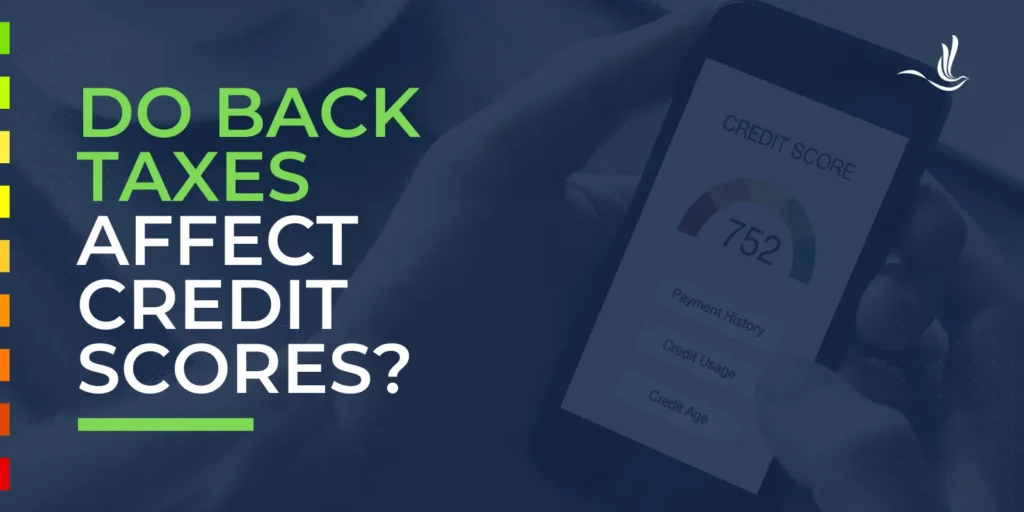
When managing personal finances, understanding the impact of back taxes on your credit score is crucial. Many people may wonder if unpaid taxes can affect their creditworthiness, especially given how credit scores play a significant role in various financial decisions, from obtaining loans to securing housing. Here’s a comprehensive look at how back taxes interact with credit scores and what you need to know to manage your finances effectively.
What Are Back Taxes?
Back taxes are taxes that haven’t been paid in full by their due date. They can include unpaid taxes owed to federal, state, or local governments. If left unpaid, these taxes can accrue penalties and interest, increasing the amount owed over time. Back taxes can result from a taxpayer failing to pay their tax bill, not reporting all their income, or not filing a tax return at all. When you owe the IRS, they may use one of several means of collecting from you.
How Back Taxes Affect Your Credit Score
So, do back taxes directly affect your credit score? The short answer is no. While back taxes themselves do not directly impact your credit score, they can have an indirect effect in several ways.
Tax Liens
Historically, if you owed back taxes, the IRS or state tax authority could place a tax lien on your property. A tax lien is a legal claim against your assets to secure the payment of your tax debt. Before 2018, tax liens appeared on credit reports and could significantly damage your credit score. However, as of April 2018, the three major credit bureaus (Equifax, Experian, and TransUnion) no longer include tax liens in credit reports. This change means that new tax liens won’t directly lower your credit score.
Debt-to-Income Ratio
Having back taxes can increase your overall debt load. While the debt-to-income ratio is not a direct factor in credit scoring models, a high debt load can affect your ability to obtain new credit and might indirectly influence your financial stability, which can reflect on your credit behavior.
Financial Stress
Owing back taxes can cause financial stress, which might lead to late or missed payments on other financial obligations, such as credit cards, loans, or mortgages. Payment history is the most significant factor in credit scoring models, and missed or late payments can severely harm your credit score.
Steps to Take If You Owe Back Taxes
If you find yourself owing back taxes, there are steps you can take to mitigate the potential impact on your financial health and credit score.
- Contact the Tax Authority: Reach out to the IRS or your state tax authority to discuss your situation. They often offer payment plans or other solutions to help you manage your debt.
- Set Up a Payment Plan: Establishing a payment plan can help you avoid additional penalties and interest. Consistently making payments can prevent further financial issues.
- Prioritize Payments: Make timely payments on all your financial obligations, including taxes and other debts. This can help maintain a good credit history and avoid late payment penalties.
- Seek Professional Help: Consider consulting a tax professional or financial advisor. They can provide personalized advice and help you navigate your tax debt.
Tax Help for Those with Back Taxes
While back taxes do not directly affect your credit score, they can have indirect effects that might harm your financial health. By understanding the relationship between taxes and credit scores, and by taking proactive steps to manage your tax obligations, you can maintain better control over your financial situation and protect your credit score. Remember, staying informed and seeking professional assistance when needed can make a significant difference in your financial well-being. Optima Tax Relief is the nation’s leading tax resolution firm with over $3 billion in resolved tax liabilities.
If You Need Tax Help, Contact Us Today for a Free Consultation